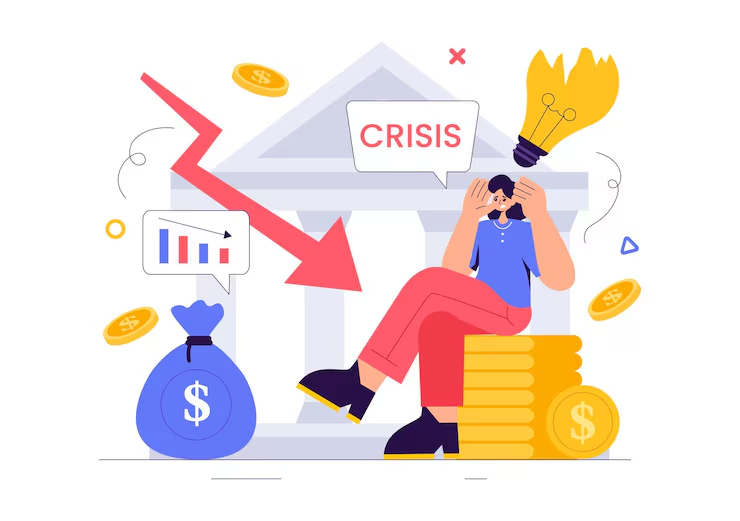Mastering Your Finances: The Ultimate Guide to Debt Management Plans
Getting a Grip on Debt Management Plans
Drowning in debt? It’s a nightmare, but a debt management plan (DMP) can be your lifeline. Let’s break down what a DMP is and how it can help you get back on track.
What’s a Debt Management Plan?
A debt management plan is like a financial GPS, guiding you out of the debt maze. Offered by credit counseling agencies or debt management companies, a DMP helps you pay off your debts in a more manageable way.
Here’s how it works: You team up with a credit counselor who talks to your creditors for you. They help you set up a budget, look at all your debts, and roll them into one easy monthly payment.
One big perk? Lower interest rates. Your counselor can often get your creditors to agree to lower rates, saving you money and helping you pay off your debt faster.
How Debt Management Plans Work
Here’s the lowdown on how a DMP usually goes down:
-
Check Your Debt: First, you and your counselor take a good look at all your debts—who you owe, how much, and the interest rates.
-
Find a Good Credit Counselor: Make sure you pick a reputable credit counseling agency. These folks know their stuff and can help you get a solid plan in place.
-
Set Up a Budget: Your counselor helps you create a budget that fits your income and expenses. This budget will include a monthly payment you can actually afford.
After these steps, your counselor will talk to your creditors to get those interest rates down and maybe even cut out some late fees. Then, they’ll bundle your debts into one monthly payment, which you’ll send to the credit counseling agency. They’ll take care of paying your creditors.
It’s super important to stick to your payment plan and keep in touch with your creditors if anything changes. If your financial situation shifts, your plan might need some tweaks.
Knowing the basics of debt management plans can help you make smart choices about your money. Remember, a DMP isn’t for everyone. It’s a good idea to look at other options and talk to a financial pro to figure out what’s best for you. To see where you stand, try our debt management calculator.
Why Debt Management Plans Rock
Debt management plans (DMPs) can be a lifesaver for folks looking to get their finances back on track. Let’s break down why these plans are worth considering.
Lower Interest Rates
One of the biggest perks of a DMP is the chance to snag lower interest rates on your debts. When you sign up, credit counseling agencies often haggle with your creditors to cut those rates down. This can save you a ton of money over time and help you pay off your debts quicker.
With lower interest rates, more of your monthly payment goes toward knocking down the actual debt instead of just covering interest. This means you can see real progress faster, which can be a huge morale booster.
One Payment to Rule Them All
Another sweet benefit of DMPs is the simplicity of making just one payment each month. Instead of keeping track of multiple bills and due dates, you make a single payment to the credit counseling agency. They handle the rest, distributing the money to your creditors.
This makes it way easier to manage your finances and avoid missing payments or racking up late fees. Plus, it’s a lot less stressful to deal with one payment instead of a bunch.
Financial Counseling Services
DMPs often come with access to financial counseling services, which can be a game-changer. These counselors provide personalized advice and support to help you navigate your way to financial stability.
They can help you create a realistic budget that fits your income and expenses, making sure you can pay off your debts while still covering your daily needs. They also offer tips on money management and debt repayment strategies, giving you the tools to make smart financial decisions now and in the future.
Real-Life Example
Take Sarah, for instance. She was drowning in credit card debt and felt like she’d never get out. She signed up for a DMP, and her credit counselor negotiated lower interest rates with her creditors. Sarah started making one monthly payment, and within a year, she saw a significant dent in her debt. The financial counseling she received also helped her build better money habits, so she didn’t fall back into old patterns.
Wrapping It Up
Debt management plans offer a bunch of benefits, like lower interest rates, simplified payments, and access to financial counseling. These perks can help you make real progress toward becoming debt-free. If you’re curious about DMPs and want to learn more, check out our article on debt management programs.
Getting a Grip on Your Debt
Tackling debt can feel like wrestling a bear, but with a solid plan, you can come out on top. Here’s a no-nonsense guide to help you get your finances back on track. We’ll walk you through figuring out how much you owe, finding the right help, and setting up a budget that works.
Know What You Owe
First things first, you need to know exactly what you’re up against. Gather all your bills—credit cards, loans, and any other debts. Make a list with the balance, interest rate, and minimum payment for each one. This will give you a clear picture of your total debt and help you prioritize which ones to tackle first.
If you need a hand organizing this mess, try using a debt management calculator. It can make the whole process a lot less painful.
Find the Right Help
Once you’ve got a handle on your debt, it’s time to bring in the pros. Look for a reputable credit counseling agency. These folks are like financial coaches—they’ll help you create a plan that fits your situation.
Make sure to pick an agency that’s accredited and certified by well-known associations. They’ll have experienced counselors who can offer solid advice and even negotiate with creditors on your behalf. Check out our article on debt management companies for some good options.
Build a Budget That Works
A budget is your best friend when it comes to paying off debt. It helps you see where your money’s going and how much you can put towards your debts each month.
Start by listing all your income sources—salary, side gigs, whatever. Then, jot down all your monthly expenses: rent, utilities, groceries, transportation, and so on. Be thorough—every dollar counts.
Now, see how much you can realistically put towards your debt each month. You might need to cut back on non-essentials like eating out or streaming services. The goal is to free up as much money as possible for debt repayment.
With a budget in place, you’ll have a clear roadmap for managing your money and paying off your debts. Stick to it, and you’ll make steady progress towards being debt-free.
Getting out of debt isn’t easy, but with some grit and a good plan, you can do it. By knowing what you owe, getting help from a reputable agency, and sticking to a budget, you’ll be on your way to financial freedom.
Keeping Your Debt Management Plan on Track
So, you’ve got a debt management plan in place. Great! Now, let’s make sure you keep it rolling smoothly. This section dives into the nitty-gritty of sticking to your plan, chatting with creditors, and tweaking things when life throws you a curveball.
Stick to the Plan
First things first, you gotta stick to your plan like glue. This means making those payments on time, every time. By doing so, you’ll chip away at your debt and boost your credit score.
To stay on track, whip up a budget that fits your current financial situation and covers your monthly payments. Keep an eye on your spending and make sure you’re putting enough money towards your debt. Need help with budgeting? Check out our debt management calculator.
Talk to Your Creditors
Keeping the lines of communication open with your creditors is a must. Let them know you’re on a debt management plan. This shows you’re serious about paying off your debt. Plus, they might cut you some slack with lower interest rates or waived fees.
Regular updates with your creditors can build a good relationship and keep them in the loop about your progress. If things get tough or your financial situation changes, let your credit counseling agency and creditors know ASAP. They might have some tricks up their sleeves to help you stay on track.
Tweak the Plan When Needed
Life happens, and sometimes you need to adjust your debt management plan. Job loss, medical bills, or unexpected expenses can throw a wrench in your plans. When that happens, reach out to your credit counseling agency to discuss changes.
Your agency can help you navigate these bumps by renegotiating with your creditors or offering extra support. The goal is to find a way to keep paying off your debt without sinking your financial ship.
By sticking to your plan, keeping in touch with creditors, and making adjustments when needed, you’ll be on your way to crushing your debt. Remember, getting to financial freedom takes commitment and discipline. For more tips, check out our articles on debt management programs, debt management companies, and debt management services.







